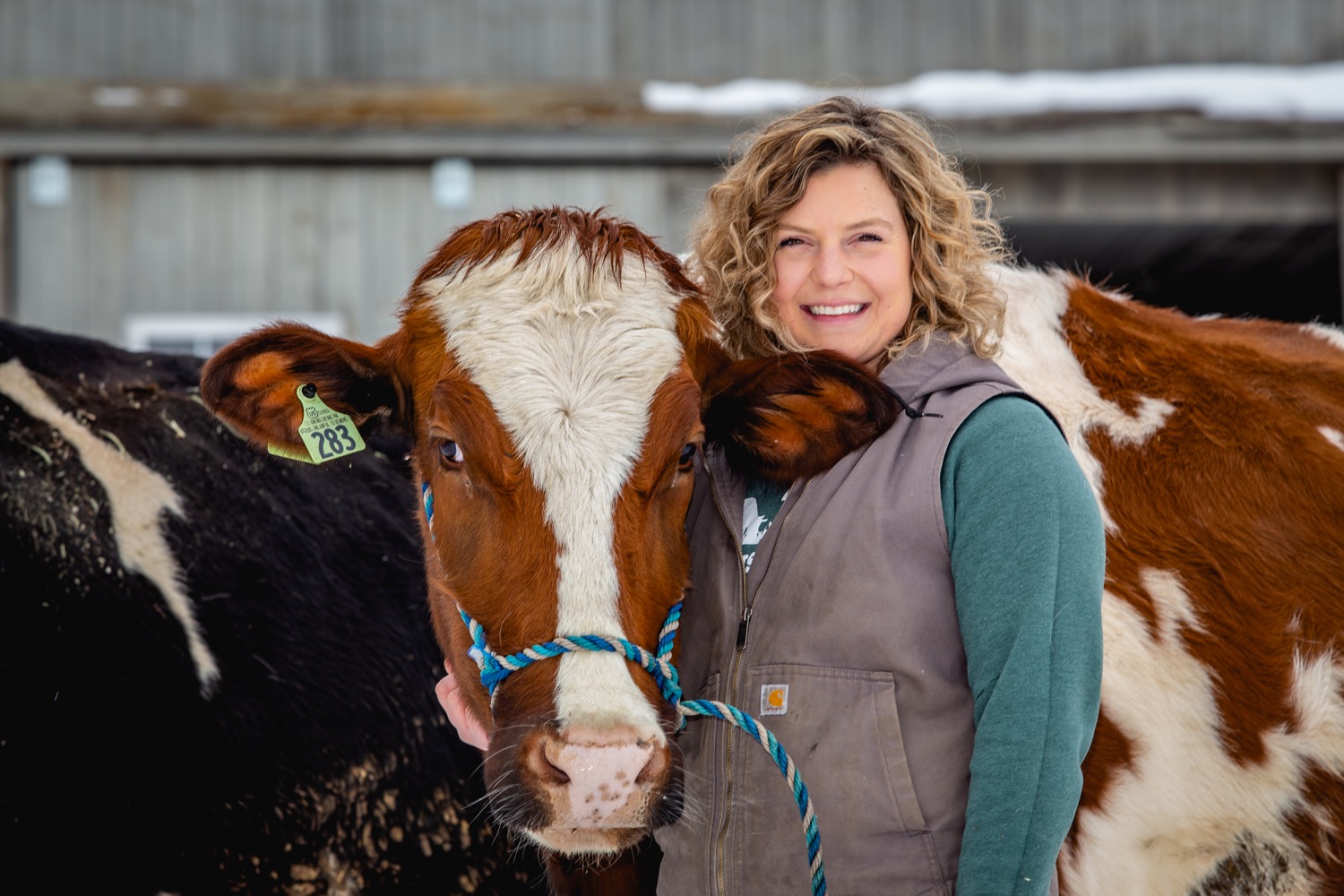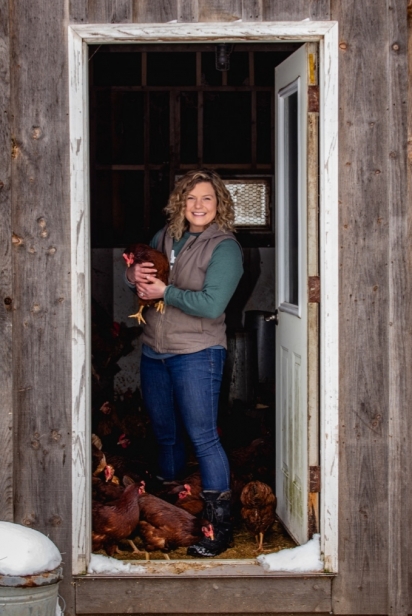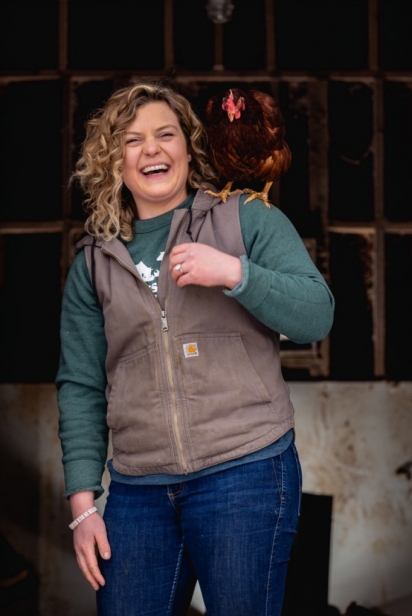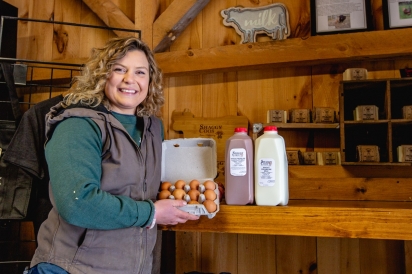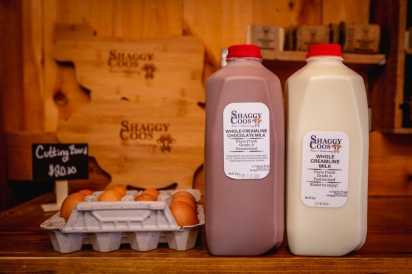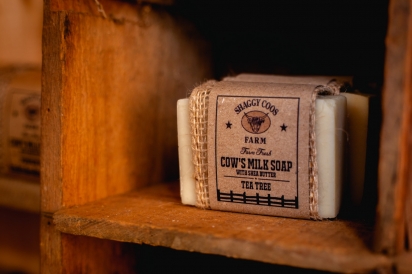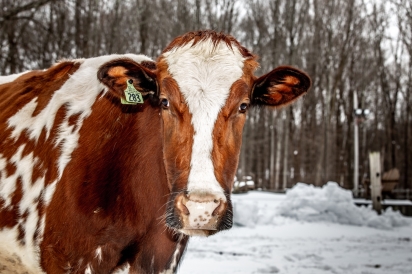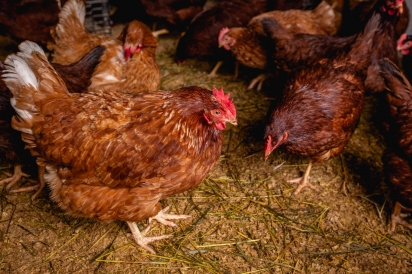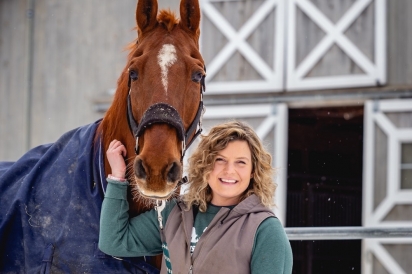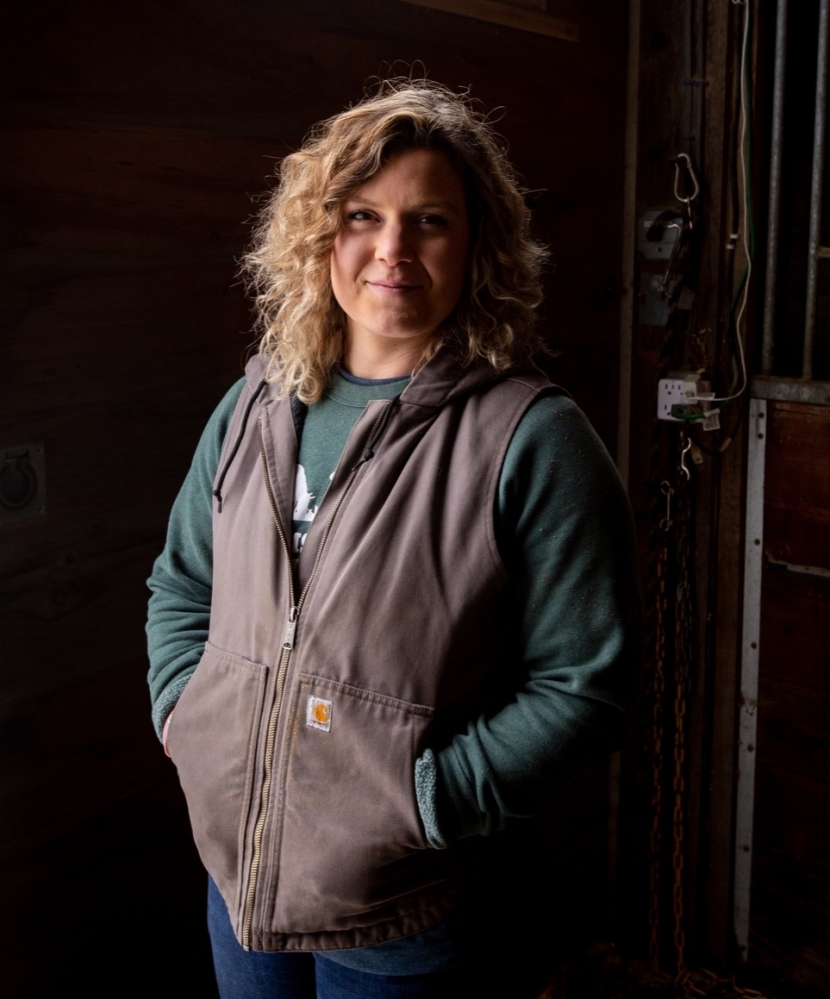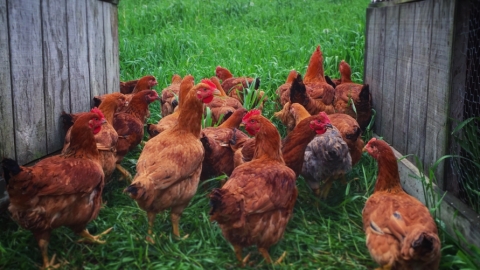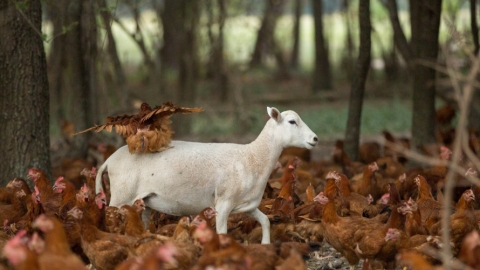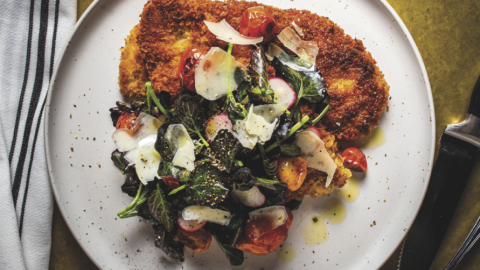Home is Where the Herd Is
In a Connecticut industry that is aging fast, young farmers are something of an anomaly. So when customers stop by to pick up a bottle of milk from Easton’s Shaggy Coos Farm, it can be a surprise to find Brittany Conover running the show.
Not yet 30, Brittany grew up on a farm in New Tripoli, Pennsylvania, which gave her a profound love and respect for agriculture. New Tripoli was rural compared to Easton, a comparison she illustrates by mentioning that her town had a “drive your tractor to school” tradition on senior prank day. She studied animal biology at Delaware Valley University, where she met Jake Conover, who had also grown up on a farm in New Jersey. Seven years ago, they moved to Connecticut together. Jake managed Silverman’s Farm, also in Easton, while Brittany continued her education, receiving her master's in Environmental Science at the University of New Haven. “It took a while, but now this feels like it is home,” she says. Through their connections in Easton, they came to know the Brady family, who owned Shaggy Coos. When presented with the opportunity to manage the small farm, she couldn’t pass it up.
For some people, it might not have been such an easy decision. With her degree, she could be a teacher or a researcher and has practiced both professions in the past at the University of Bridgeport and Aqua Research Lab in Newtown. She still teaches biology at Fairfield University and also works there as the Microbiology and Organismal Biology Lab Supervisor. “At the beginning of the first class, I tell them that I’m Professor Conover, and I have a farm,” she laughs. She brings her excitement about agricultural topics to her classes and uses her years of practical experience to illustrate concepts in class, discussing her experiences with breeding animals for genetics and her knowledge of the carbon and nitrogen cycle in ecology.
She also brings the knowledge and ethics she learned in school back to the farm. Shaggy Coos raises livestock humanely, without any artificial aids, and feeds them high-quality hay, grain, and grass that is antibiotic- and hormone-free. She is also trying to practice sustainable agriculture, maintaining solar panels and trying to get a grant for composting. “A fully sustainable farm will be difficult,” she says, “but we are trying to get to 75% sustainability.”
Shaggy Coos specializes in dairy, selling fresh milk to local customers. Their cows roam on the farm’s pastures, rotating regularly through the property. They are never fed GMOs, antibiotics, or growth hormones, resulting in milk that customers call “delicious,” “creamy,” and “amazing.” They pasteurize the milk at the farm in a 34-gallon tank – about two days’ worth of milkings. It is also bottled on site and sold directly from the farm stand – a remarkable example of vertical integration. Conover’s most popular product may be chocolate milk, made with a custom, cocoa-rich recipe that complements the naturally rich milk of her cows. “Fairfield County used to be dairy-rich, and we’d like to bring that aspect back to the area,” she says.
Small farms that produced butter and cheese commercially have been around since the 1600s, and beginning in the 1950s, refrigeration and highway transport made milk an even bigger part of this industry. Modern improvements in milking stalls and veterinary care have helped boost the growth of dairy farms, but the suburban development of farmlands has done the opposite. The lack of locally available cropland for grain, for example, has increased costs for animal feed. Since 1975, the number of dairy farms in the state have decreased from 817 to 100, while costs have continued to go up and profits have gone down.
Nevertheless, dairy farming in Connecticut today remains a $2 billion business, with thousands of employees. Shaggy Coos’ micro-dairy design is particularly appealing for people who want to support their community and are concerned about sourcing. “People love to know the cows their milk comes from,” she says. “They want to know that they are being taken care of.” And milk is not the only product people can buy at Shaggy Coos. In the past few years, she has broadened their reach by making chicken eggs available and starting a pig harvest, offering the meat in half portions. The chickens and pigs roam freely and forage in the fresh air, on top of being pampered with high-quality feed. In the past year, she has also doubled the number of pasture-raised turkeys on the farm. They can be reserved for the holidays and range from six to 30 pounds.
The farm is also home to a number of horses, including her own. “My goal was to fill up the barn,” she says. “I love to take care of horses and am happy to provide a place for them to board.” In the future, she envisions adding more turkeys and pigs and expanding to support other local farms. “You should want to know the origin of all your food; to teach people about that is a great thing.”
The life of a farmer can be challenging, but she seems perfectly fit to the task. She wakes at 5am and is milking the cows by 5:30. After two hours' milking, she moves to other tasks – among them, caring for the horses, mucking stalls, and feeding the pigs – until 11am. On days she works at Fairfield University, she heads to teach class and supervise the labs. If not, she spends that time dealing with ever-growing piles of office work for the farm. Then, at 4pm, she starts the evening chores, mucking stalls again, taking care of the chickens, and completing whatever tasks arise. She gets to bed by 9pm and starts all over the next day.
Her husband has similarly long days nearby at Silverman’s Farm, along with helping when he can at Shaggy Coos, and his work ethic inspires her. “Jake motivates me and pushes me to work even harder,” she says. Together, they somehow find the time and energy to exercise with CrossFit but do not get the chance to participate in the social lifestyle many of her generational peers do in other lines of work.
Her farming peers are often a different set of people; many of the remaining dairy farmers in Connecticut are older men. “It’s important to have female-run farms,” she says, “and most farms are owned by the older generation.” According to the USDA’s 2017 census, only 72 of the 689 farmers in Fairfield County are 35 years old or younger, matching the national trend. “Some might see me as a young, inexperienced person, but many farmers have welcomed the fact that young people, especially women, are getting involved,” she says. “I’m very appreciative of all the support.” She is giving back, currently serving as a member of the Easton Agricultural Commission, as well as sitting on the Board of Directors for the Fairfield Farm Bureau, and is part of the outreach team for Farmer Circles (a peer-to-peer learning community for farmers).
Clearly, Conover is in it for the long haul. “I’m not a hobbyist,” she says. “I want to continue this and grow this for future generations.” She hopes to build the sort of farm that becomes a model for others, part of a network of different types of farms in Easton and greater Fairfield County that highlight local agriculture in this heavily populated area. “We’re excited to be here and support the community,” Conover says. “We’re working hard to provide these products and are happy to do it.”
> Shaggy Coos Farm & Creamery: 53 Center Rd., Easton


